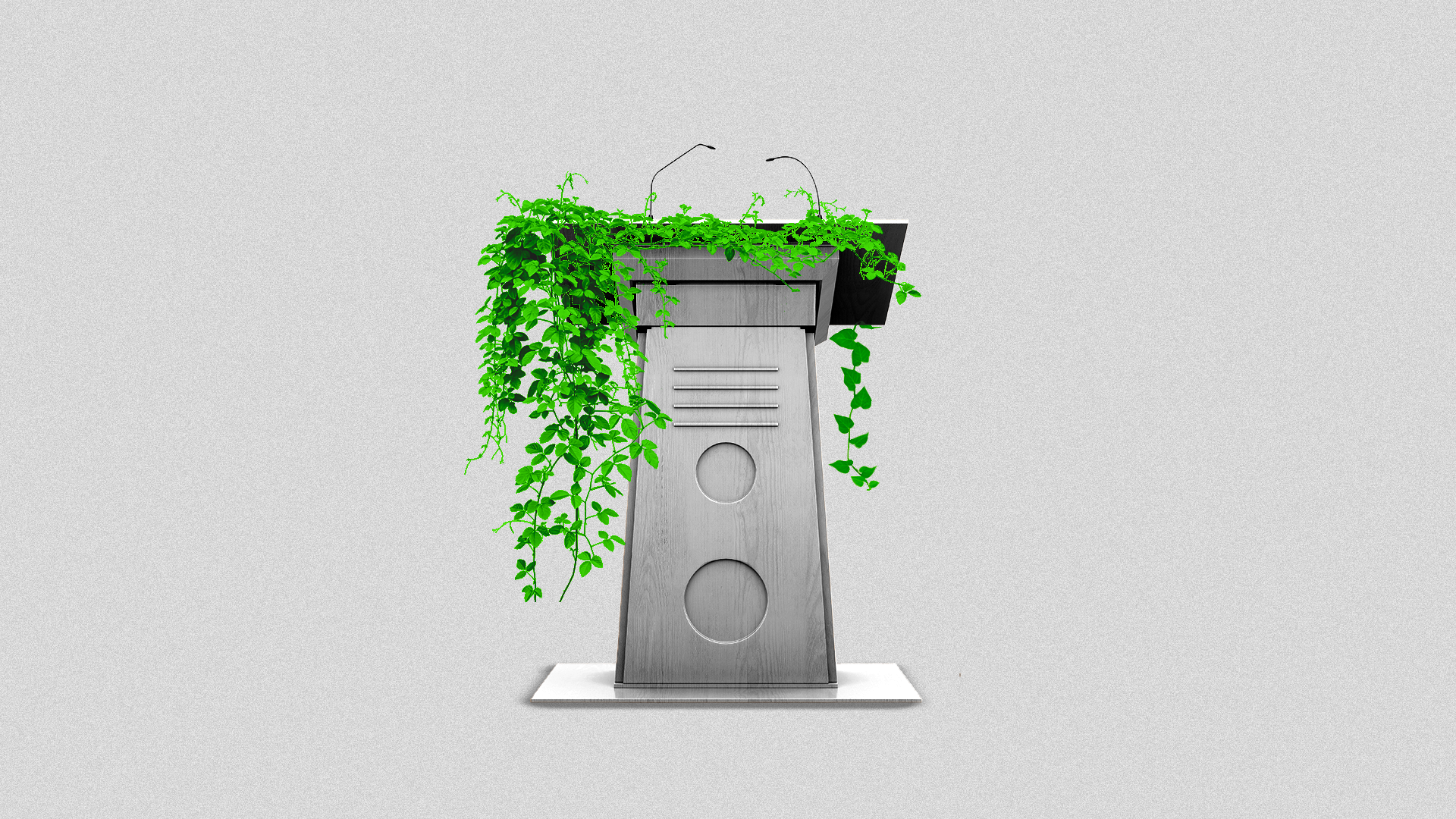Dems' disjointed climate debate
Add Axios as your preferred source to
see more of our stories on Google.

Illustration: Aïda Amer/Axios
The climate chatter in last night's Democratic primary debate lacked a narrative through-line but produced interesting moments nonetheless.
The big picture: South Bend, Ind., Mayor Pete Buttigieg made an agriculture pitch ahead of Iowa. He's the frontrunner in a closely watched recent poll of likely Democratic caucus-goers.
- And he didn't pass up the chance to emphasize his ideas around the climate-agriculture nexus, which, to be sure, had been revealed before last night.
- "I believe that the quest for the carbon-negative farm could be as big a symbol of dealing with climate change as the electric car in this country," Buttigieg said in redirecting a question about farm subsidies.
- His plan would, among other things, pay farmers for soil management practices that store carbon.
Nobody would complain it was too granular (or revealing). MSNBC's Rachel Maddow asked the lone question.
- It wasn't structured to draw out policy specifics. And it didn't. She asked how candidates would "secure leadership and bipartisan support" for a multidecade effort.
What they're saying: FiveThirtyEight's Amelia Thomson-DeVeaux observes that climate discussion in the debates thus far hasn't been especially specific.
- "Maybe that’s partially because of the questions that are being asked? It’s obviously a hugely important topic, but one where it seems difficult to have a substantive back-and-forth in a debate," she wrote on their liveblog.
Bookmark this: "I think it is the existential threat to humanity. It's the Number One issue," Joe Biden said (emphasis added).
- Quick take: Let's say Biden wins the White House and Democrats somehow eke out a small Senate majority.
- He'll face a near-term decision about where to spend his political capital and which major legislation to push first if a narrow window opens. If it's the "Number One issue," does that mean it's first in line?
The Bernie Sanders-Pete Buttigieg contrast: Sanders was aggressive, noting at one point that "the fossil fuel industry is probably criminally liable" because they "lied when they had the evidence" and deserve prosecution (it's an idea in his wider plan released in August).
Buttigieg at one point talked up outreach to "conservative communities where a lot of people have been made to feel that admitting climate science would mean acknowledging they're part of the problem."
- Those concepts are not mutually exclusive. Both have wide-ranging climate plans, though Sanders' $16 trillion is the most aggressive (and rather controversial).
Tom Steyer made an important point by saying that housing policy is climate policy, noting "how we build units, where people live has a dramatic impact on climate and on sustainability."
- A Biden-Steyer exchange produced some minor fireworks, which the Washington Examiner unpacks here and The Los Angeles Times describes here
Climate surfaced repeatedly in answers even outside the lone direct question, which shows how the topic is now stitched into the fabric of Democratic politics.
Go deeper:
